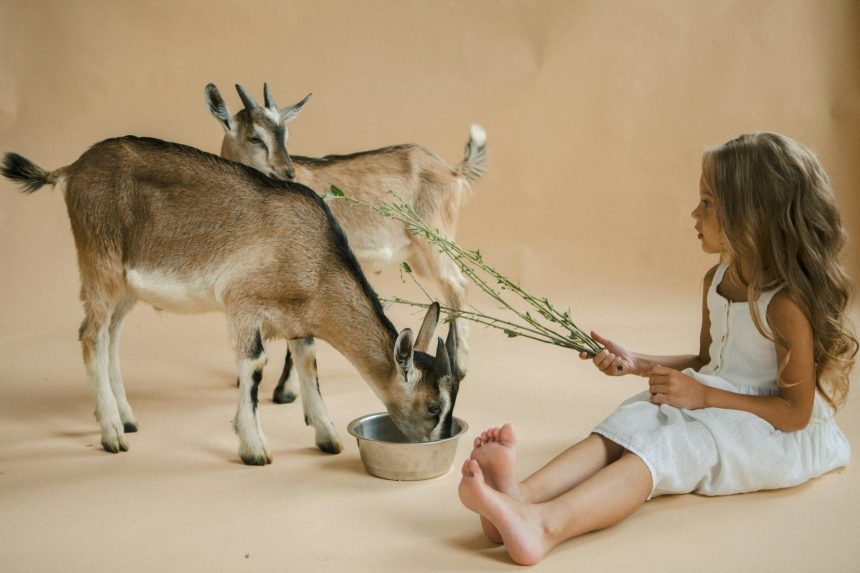farm-animals
Farm Animals: 7 Surprising Ways They Enrich Our Lives?
Have you ever paused to consider the profound impact that the humble creatures of the farm have on our daily existence? Beyond the idyllic images of sprawling pastures and rustic barns, farm animals play a far more significant role than many realize. From providing sustenance and companionship to contributing to sustainable ecosystems, these incredible beings are integral to our world. This article will delve into the multifaceted ways these barnyard residents enhance our lives, offering insights into their diverse contributions and unique personalities.
The Enduring Appeal of Farm Animals in Modern Life
The connection between humans and farm animals is ancient, stretching back thousands of years to the dawn of agriculture. This bond isn’t just about utility; it’s deeply woven into our cultural fabric. Today, as urban life often separates us from nature, the charm of farm animals continues to captivate, offering a tangible link to simpler times and fundamental truths about life.
Whether you’re a city dweller dreaming of a countryside escape or a homesteader embracing self-sufficiency, understanding these animals is key. Their presence fosters responsibility, teaches patience, and even offers therapeutic benefits. It’s a reminder that even in our fast-paced world, the rhythms of nature and the gentle presence of livestock can bring immense calm.
More Than Just Livestock: The Diverse Roles of Farm Animals
The term “farm animals” often conjures images of cows and chickens, but the spectrum is much broader. Each species brings its own unique set of benefits and characteristics to the farm ecosystem and to human society. Their contributions range from essential resources to unexpected forms of emotional support.
- Food Production: Providing meat, milk, eggs, and other dairy products.
- Fiber and Materials: Wool from sheep, leather from cattle, and feathers from poultry.
- Labor and Land Management: Ploughing fields, managing vegetation, and pest control.
- Fertilization: Manure enriches soil, promoting healthier crops.
- Companionship and Therapy: Offering comfort and reducing stress in various settings.
Unveiling the Unique Personalities of Farm Animals
Just like household pets, individual farm animals possess distinct personalities. Observing these traits can be one of the most rewarding aspects of interacting with them. What might seem like a uniform herd is, in fact, a collection of unique characters, each contributing to the dynamics of the farm.
Gentle Giants and Playful Pals
From the stoic presence of a cow to the mischievous antics of a goat, the variety of temperaments is endless. Pigs, often stereotyped, are surprisingly intelligent and can be quite affectionate. Sheep, known for their calm demeanor, can also display a surprising level of curiosity and social interaction within their flock.
Goats, with their boundless energy and inquisitive nature, are often the comedians of the farm. Their playful leaps and climbs can bring a smile to anyone’s face. Ducks, on the other hand, offer a more laid-back presence, waddling with an easygoing charm that adds a peaceful backdrop to any farm setting. These individual traits highlight why understanding and respecting each animal’s nature is so important.
Sustainable Living and the Importance of Farm Animals
In an era increasingly focused on sustainability, farm animals are more relevant than ever. They are key players in circular agricultural systems, helping to reduce waste and promote ecological balance. Integrating livestock into farming practices can significantly enhance soil health and biodiversity.
Consider the role of grazing animals in pasture management. Their natural foraging helps control weeds and distribute seeds, while their waste fertilizes the land, reducing the need for chemical inputs. This symbiotic relationship is a cornerstone of regenerative agriculture, demonstrating how these animals contribute to a healthier planet for all.
- Natural Fertilizers: Manure enriches soil, boosting crop yields without synthetic chemicals.
- Pest Control: Chickens and ducks can help control insect populations in gardens.
- Weed Management: Goats and sheep are excellent for clearing overgrown areas.
- Biodiversity: Promoting diverse ecosystems through grazing and natural behaviors.
- Reduced Waste: Animals can consume food scraps and crop residues, minimizing waste.
Connecting with Nature: The Therapeutic Benefits of Farm Life
Interacting with farm animals offers profound therapeutic benefits, helping to reduce stress and promote mental well-being. This connection to nature and the simple routines of farm life can be incredibly grounding. Many programs now utilize farm settings for therapeutic purposes, recognizing the calming effect these animals have.
The rhythmic sounds of the barnyard, the tactile experience of petting a sheep, or the quiet observation of grazing cattle can provide a much-needed escape from the demands of modern life. This isn’t just anecdotal; studies suggest that animal interactions can lower cortisol levels and increase feelings of happiness. For more on the benefits of human-animal interaction, explore resources from organizations like the Humane Society of the United States.
Understanding the proper care and welfare of these animals is also paramount. Responsible stewardship ensures their health and happiness, which in turn enhances their ability to contribute to our lives and the environment. Learning about their needs, from nutrition to shelter, is a journey of continuous discovery. The USDA’s National Agricultural Library offers extensive resources on animal welfare in agricultural settings.
Conclusion: Embracing the Value of Our Barnyard Friends
From their essential contributions to our food supply and sustainable agriculture to their unique personalities and therapeutic presence, farm animals are truly invaluable. They offer a tangible connection to the natural world, teaching us about life, responsibility, and the simple joys of coexistence. Embracing their role enriches not only our lives but also the health of our planet.
What’s your favorite memory or interaction with a farm animal? Share your story and connect with fellow enthusiasts in the comments below!
Featured image provided by Pexels — photo by KATRIN BOLOVTSOVA






